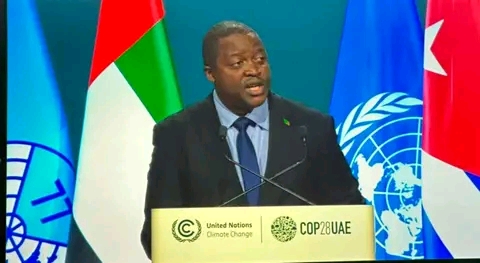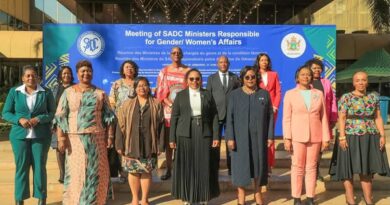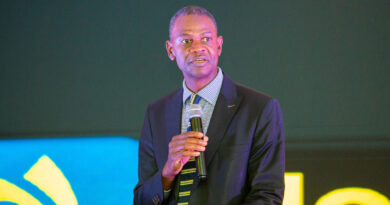Zambia Advocates for Global Climate Action at G77 and China Leaders Summit in Dubai
Zambia’s commitment to addressing the pressing global issue of climate change was reinforced as Hon. Stanley K. Kakubo, the Minister of Foreign Affairs and International Cooperation, represented President Hakainde Hichilema at the G77 and China Leaders Summit, held on the sidelines of the COP28 meeting in Dubai.
Speaking in Zambia’s capacity as the Chair of the African Group of Negotiators during the summit on Saturday, December 2nd, 2023, Hon. Kakubo emphasized the need for increased international cooperation to tackle the climate crisis comprehensively.
He called for concerted efforts in addressing crucial aspects such as loss and damage, adaptation, and mitigation strategies, urging action before the second Global Stocktake scheduled for 2028.
Hon. Kakubo drew attention to the disproportionate impact of climate-induced hazards on developing countries, particularly in the African region, despite their minimal contributions to global climate change.
He highlighted the adverse effects of extreme weather events on agricultural productivity, leading to poverty and hunger in the global south.
The minister stressed the urgency for developed nations to fulfill their pledges and assist in building resilience to climate impacts, especially in the global south, as the global community evaluated progress on climate action during the first Global Stocktake of the Paris Agreement.
Addressing the continued rise in global greenhouse gas emissions and the challenge of limiting global warming to 1.5 degrees Celsius, Hon. Kakubo underlined that climate change poses a significant barrier to achieving the 2030 Agenda and the Sustainable Development Goals, particularly in the global south.
Highlighting Zambia’s commitment to combating climate change, Hon. Kakubo shared the country’s efforts in collaboration with partners. This includes the implementation of policies and techniques supporting the adoption of climate-resilient crops to address food insecurity.
Zambia is also scaling up investments in renewable and clean energy, adopting water harvesting methods, promoting irrigation, and ensuring the efficient use of water resources.
Additionally, the country is strengthening early warning systems and preparedness and utilizing geographic information systems for mapping drought and flood-prone areas.
In conclusion, Hon. Kakubo called for increased green private sector investments to fill gaps in climate financing, emphasizing the crucial role of the private sector in building resilience to climate change.
Zambia’s proactive approach and comprehensive strategies showcased its commitment to contributing to global efforts in mitigating the impacts of climate change.



